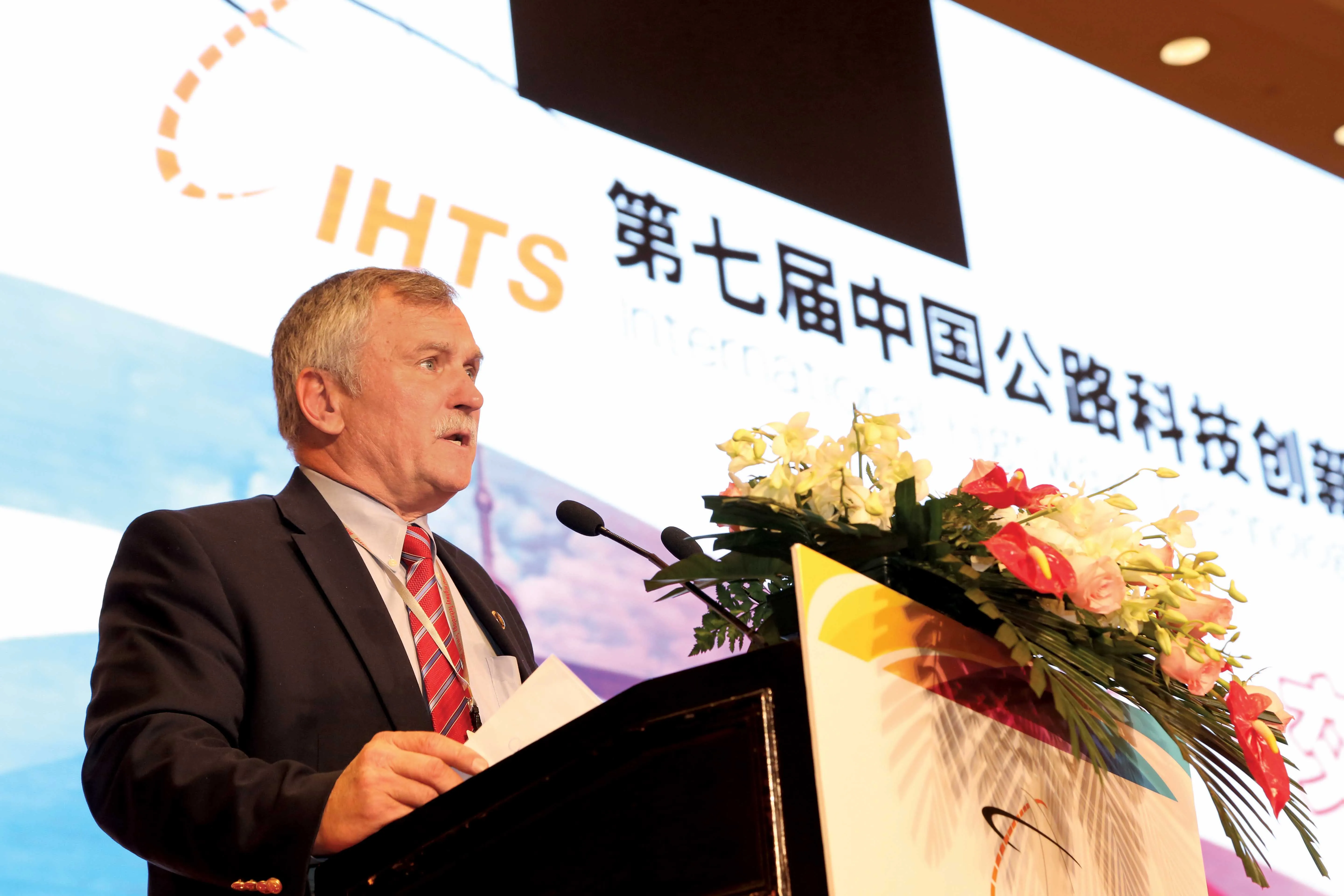Turkey’s Yavuz Sultan Selim Bridge over the Bosporus is having its official opening, which is being carried out by senior members of the country’s government including president Recep Erdoğan. The final sections of the deck structure were put into place in March 2016 and the project, which commenced in 2013, has been completed in record time.
This is the third bridge to span the Bosporus at Turkey’s commercial centre, Istanbul and the new crossing will form part of the country’s North Marmara Highway pro
August 25, 2016
Read time: 3 mins
Turkey’s Yavuz Sultan Selim Bridge over the Bosporus is having its official opening, which is being carried out by senior members of the country’s government including president Recep Erdoğan. The final sections of the deck structure were put into place in March 2016 and the project, which commenced in 2013, has been completed in record time.
This is the third bridge to span the Bosporus at Turkey’s commercial centre, Istanbul and the new crossing will form part of the country’s North Marmara Highway project. The project was carried out by the IC Ictas –1324 Astaldi joint venture, which has handled the work under the build-operate-transfer (BOT) model. The consortium will operate the link for 10 years, two months and 20 days (which includes the construction period) before transferring it to Turkey’s Ministry of Transportation. The project team combined Turks from local firm ICTAS and Italians from contractors Astaldi, with designers from Belgium, France and Switzerland and a South Korean sub-contractor.
The bridge is of note as it carries eight highway lanes as well as two railway lines. Its 59m wide deck means that it is one of the largest suspension bridges ever constructed. Although not the world’s longest suspension bridge as such, it is the longest that carries both road and rail connections. The bridge is also of note technically in that it has been designed to cope with the massive earthquake shocks that occur periodically in the area.
The opening of the new bridge will help reduce congestion and journey times on the two existing crossings. It will also help to alleviate the notorious levels of traffic congestion in Istanbul, which often backs up on the feeder routes to the existing bridges.
The bridge has 322m high towers and the project cost some US$3 million. Other sections of the North Marmara Highway are already open to traffic and the entire route should be complete during 2018.
The project to construct the Yavuz Sultan Selim Bridge was the subject of a Key Project Report in World Highways in the %$Linker:2 Internal <?xml version="1.0" encoding="utf-16"?><dictionary /> 2 18017 0 oLinkInternal June 2014 issue Major Europe-Asia bridge connection in Turkey false /sections/key-projects/features/major-europe-asia-bridge-connection-in-turkey/ false false %>.
The first bridge over the Bosporus was completed in 1973 and within one year of its opening, traffic volumes over the structure had grown by around 200% according to research.
The Fatih Sultan Mehmet Bridge (2nd Bridge) opened to traffic in 1988 and since that time, studies show that the volume of vehicles crossing the two bridges has increased enormously by as much as 1,180%. With traffic levels in Istanbul continuing to grow, along with the city’s population, the need for a third crossing has long been recognised and this was initially proposed in the 1990s.
This is the third bridge to span the Bosporus at Turkey’s commercial centre, Istanbul and the new crossing will form part of the country’s North Marmara Highway project. The project was carried out by the IC Ictas –
The bridge is of note as it carries eight highway lanes as well as two railway lines. Its 59m wide deck means that it is one of the largest suspension bridges ever constructed. Although not the world’s longest suspension bridge as such, it is the longest that carries both road and rail connections. The bridge is also of note technically in that it has been designed to cope with the massive earthquake shocks that occur periodically in the area.
The opening of the new bridge will help reduce congestion and journey times on the two existing crossings. It will also help to alleviate the notorious levels of traffic congestion in Istanbul, which often backs up on the feeder routes to the existing bridges.
The bridge has 322m high towers and the project cost some US$3 million. Other sections of the North Marmara Highway are already open to traffic and the entire route should be complete during 2018.
The project to construct the Yavuz Sultan Selim Bridge was the subject of a Key Project Report in World Highways in the %$Linker:
The first bridge over the Bosporus was completed in 1973 and within one year of its opening, traffic volumes over the structure had grown by around 200% according to research.
The Fatih Sultan Mehmet Bridge (2nd Bridge) opened to traffic in 1988 and since that time, studies show that the volume of vehicles crossing the two bridges has increased enormously by as much as 1,180%. With traffic levels in Istanbul continuing to grow, along with the city’s population, the need for a third crossing has long been recognised and this was initially proposed in the 1990s.







